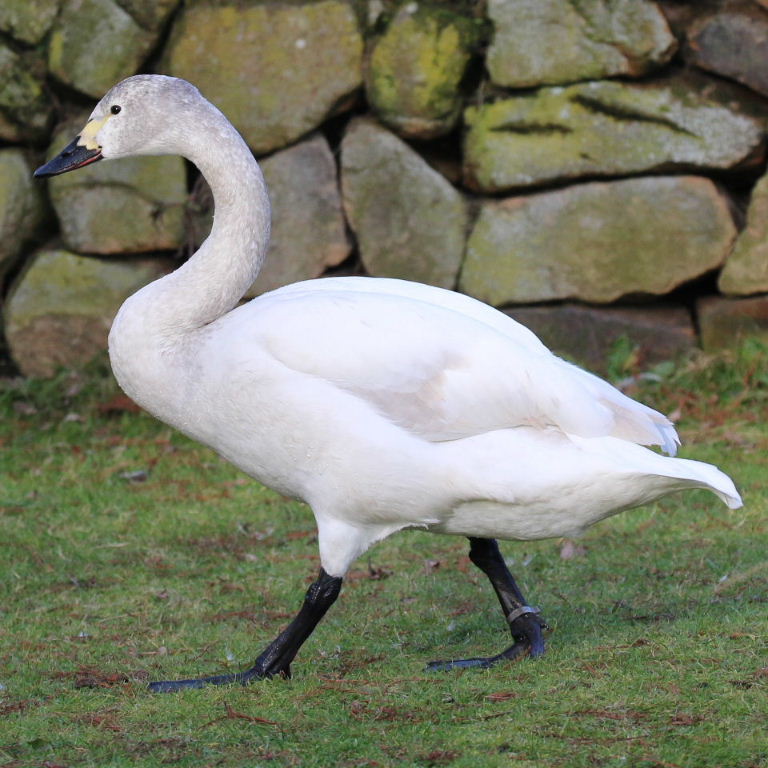Bewick's Swan Cygnus (columbianus) bewickii


There are two "Tundra" swans, Cygnus columbianus: the one usually called either the Tundra Swan or
the Whistling Swan, C. columbianus species or C. columbianus columbianus subspecies/race and the one usually
called Bewick's Swan, C. bewickii species or C. columbianus bewickii subspecies.
As with all swans, there is little difference in appearance between the male Bewick (cob, above left) and the female (pen, above right),
although the former is usually slightly larger.



Bewick's has far more yellow on its bill than the Tundra, about a quarter of the bill, is slightly smaller
and breeds in Siberia and winters in western Europe (the Tundra or Whistling Swan, has an almost fully black bill
with a small yellow patch of varying size and breeds in arctic/sub-arctic Canada/Alaska and winters in North America; the Whistling Swan doesn't
whistle but has a high-pitched honk similar to the Bewick and is significantly smaller than the American Trumpeter swan, the latter having an all
black bill and a trumpeting sound similar to the Eurasian Whooper Swan). All four, in size order Trumpeter, Whooper, Tundra/Whistling and
Bewick's, are known as "Arctic" swans.



Bewick's Swan is smaller than the Whooper, but the main visual difference is the amount and pattern of yellow on the bill.
In the Bewick well over half and up to three-quarters of the beak is black with black surrounding the nostrils; the yellow joins the black in a
fairly flat, obtuse and slightly ragged line, in contrast to the Whooper which has well over half yellow, forming an acute angle below the nostril
(see links at foot of page).



Juveniles above.


 Bewick Swan shading cygnet ("I could have danced in Swan Lake ballet")
Bewick Swan shading cygnet ("I could have danced in Swan Lake ballet")
Comparison of swan's heads: click for link to other swans
 Tundra (North American) can have more yellow on beak or can have all black beak like the
larger Trumpeter swan
Tundra (North American) can have more yellow on beak or can have all black beak like the
larger Trumpeter swan








